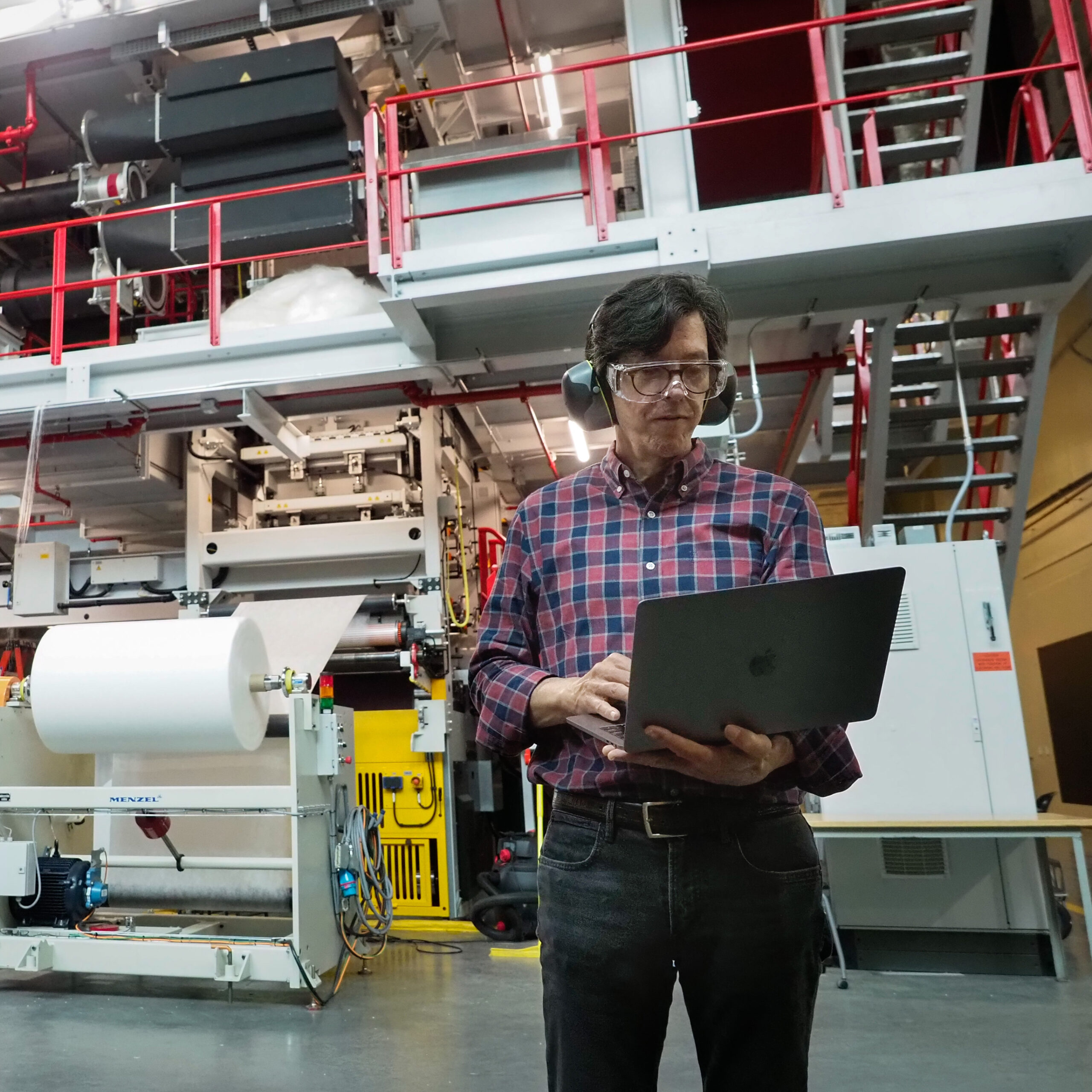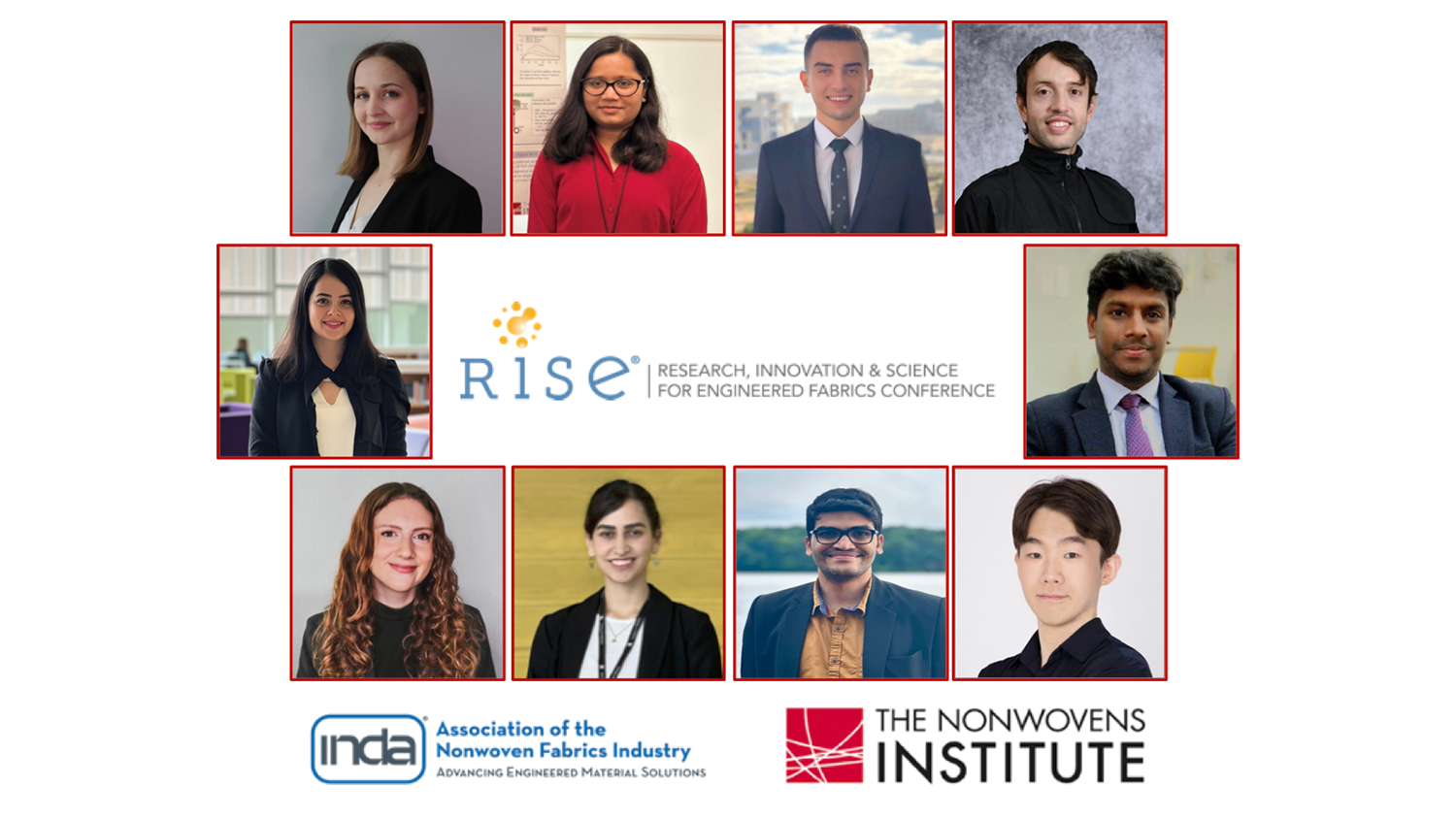NWI Announces Outstanding Researcher Awards from Fall 2023 IAB Meeting
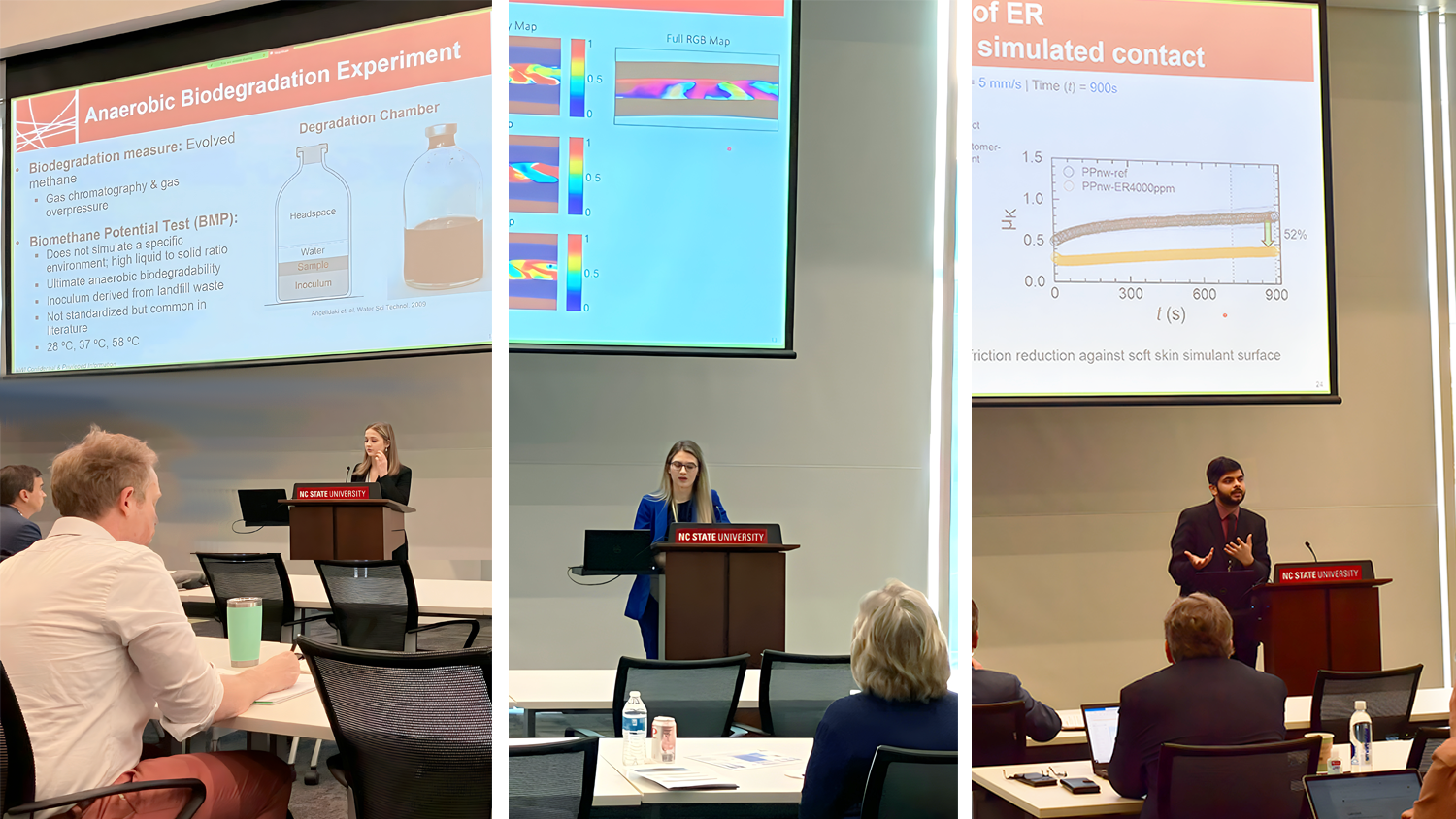
Bringing together the best of both industry and academia is a hallmark of The Nonwovens Institute (NWI). Located in the heart of the vibrant Centennial Campus of North Carolina State University in Raleigh, NWI is an innovative global partnership between industrial practitioners in both the private and public sectors and academia, resulting in unique opportunities for graduate students across a variety of technical disciplines at the university.
As noted by Dr. Constantine Megaridis, located at The University of Illinois at Chicago (UIC), and one of NWI’s extended academic colleagues who led the Institute’s 2020 5-Year Review, “Students commented upon the strength of the faculty associated with NWI and the linkage between industrial members of The Institute and their research work.” Students also highlighted that “NWI offers us an opportunity to work with real world experts and technical leaders to a far greater degree than our peers.”
One of the most important functions of NWI’s Industrial Advisory Board (IAB) is the review of industry-identified graduate student research projects at its bi-annual meetings. Here, technical experts from across the industry listen to and provide feedback upon student presentations regarding their research, while also learning from the students’ work.
NWI Deputy Director Tom Daugherty recently commented, “These presentations provide an opportunity for students and members alike to boldly explore new ideas, methods, and perspectives, and to challenge existing assumptions and paradigms.” Membership representatives agreed with this sentiment, as the Student Presentations ranked highest among survey respondents as the “most helpful/informative” aspect of the November 2023 IAB meeting.
On November 20, 2023, recognition of three students by the IAB for their outstanding work was announced:
Best Presentation Award: Anicah Smith O’Brien – “Effect of Surface Coatings on Biodegradability and Functional Properties of Model Pure and Blended Biopolymer Substrates”
Anicah received her Bachelor of Science in Chemical Engineering from the University of Kentucky in Lexington in 2022. Her presentation focused on understanding of how surfactant type and blending effect biodegradability of various biopolymer substrates, as well as surfactant adsorption and the subsequent impact on wettability.
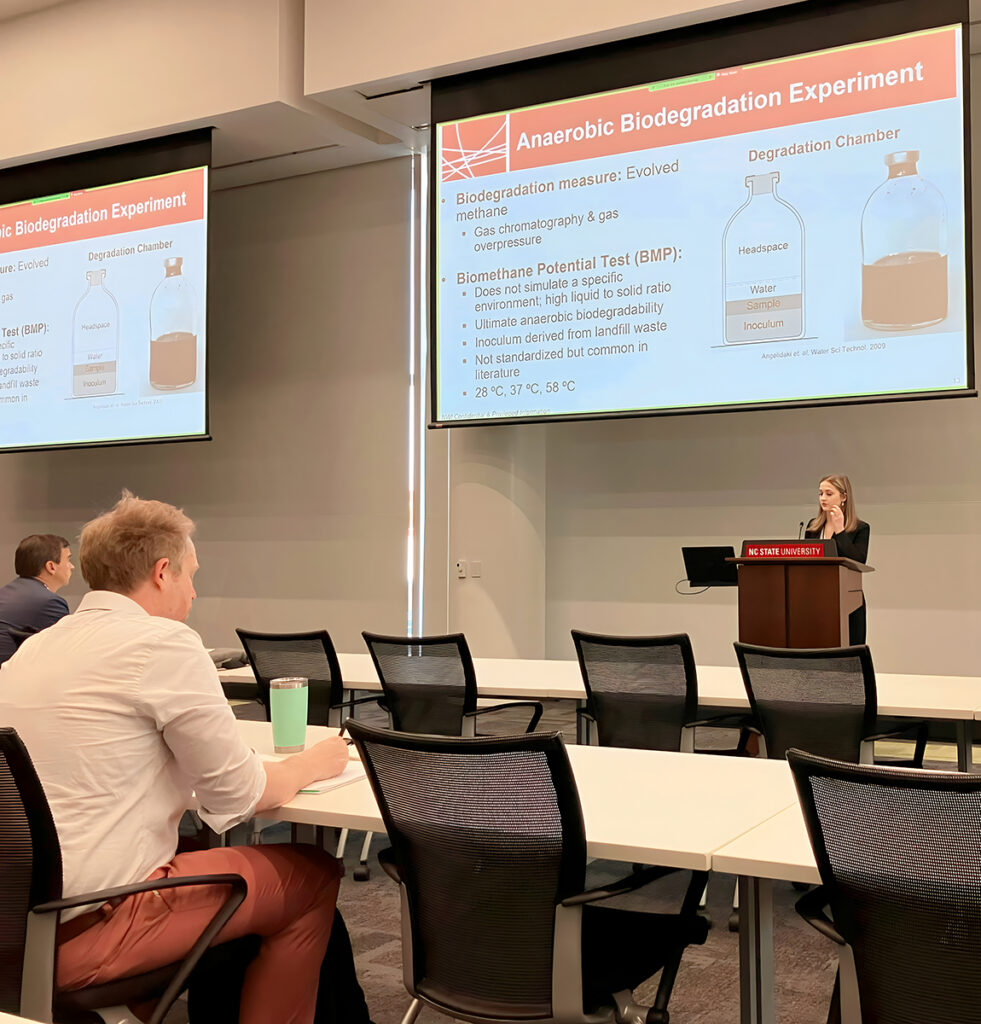
A variety of applications, including personal hygiene, single-use wipes, and food products use non-biodegradeable polypropylene and polyethylene, which have been hydrophilized by surfactants. It is of increasing interest to both nonwovens companies, as well as the general public, that more sustainable materials, with the capability to be implemented into hygiene products, be identified. While there are many possible approaches to improved sustainability, including investigation of recycled feedstocks, the current research is focused on bio-derived polymers, such as poly-lactic acid (PLA). However, such materials are hydrophobic, thus requiring hydrophilization before use as a nonwoven top sheet. Additionally, biopolymers are commonly blended to improve nonwoven processing. Understanding how surface modifications and blending impact polymeric properties and biodegradability is critical for such biopolymers to be fully implemented into the industry. Ultimately, while this understanding is an important part of the picture, material development and selection for any given application requires additional and broader consideration of material options and of sustainability measures that go beyond the scope of the current work.
Anicah started her doctoral studies in Chemical and Biomolecular Engineering at NC State in 2022. She is a student of Dr. Saad Khan of the University’s Department of Chemical and Biomolecular Engineering and Dr. Morton Barlaz, of the Civil, Construction and Environmental Engineering Department. She was previously recognized by the IAB for outstanding work at the Spring 2023 IAB meeting.
Best Technical Award: Anastasia Timofeeva – “Dynamic, In-Situ Characterization of Failure Modes in Fiber Spinning”
Anastasia received her Bachelor of Science in Physics from Bloomsburg University of Pennsylvaniaand her Bachelor of Science in Engineering Science from Penn State University. Her presentation focused upon the development and implementation of a high-speed polarization imaging technique, compilation of a database of fiber failure modes for various materials and processing parameters, and the development and implementation of an automated in-situ process monitoring method for identification of defects (failure modes) in fibers.
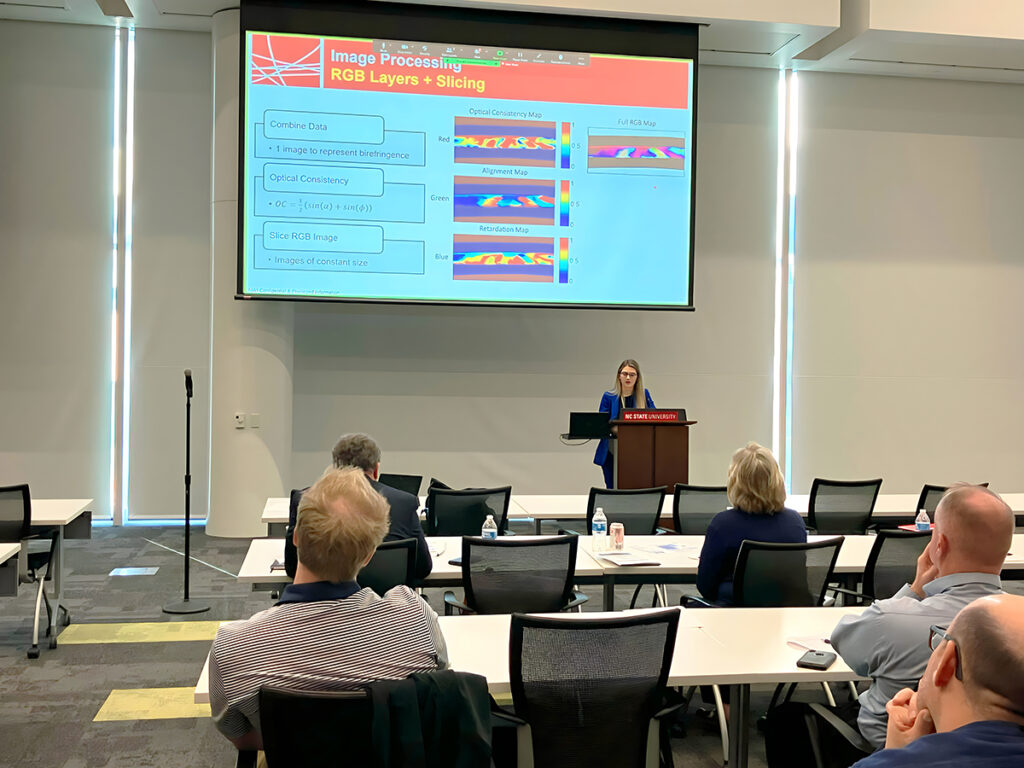
Fiber spinning is a complex process in which many material and process parameters can result in undesirable finished product defects. Polymer fibers undergo flow-induced crystallization that affects the final quality of the fibers and the nonwoven material. Modern, commercial fiber and nonwoven manufacturing is an exceedingly high-speed process where continuous monitoring of these parameters and attributes is challenging. The ability to recognize processing irregularities would reduce the downtime for production lines, as well as provide in-situ quantitative data that can be used for optimization of production process parameters. Overall, this study can help researchers develop an understanding of why defects occur and relate polymer properties to spinning conditions. In her work, Anastasia is exploring the use of high-speed polarized light imaging to measure internal stress fields and implementation of machine learning methods for automatic detection of defective regions within the fibers as they are being produced.
Anastasia is a student of Dr. Kara Peters and Dr. Mark Pankow of NC State’s Department of Mechanical and Aerospace Engineering. She is currently a Graduate Research Assistant at NWI while pursuing her Ph.D. degree in Mechanical Engineering at NC State, which she anticipates receiving in December 2024. She was previously recognized by the IAB for outstanding work at the Fall 2022 and Spring 2023 meetings. Anastasia presented her work at the Society of Photographic Instrumentation Engineers (SPIE) Smart Structures + Nondestructive Evaluation Conference in March 2023 and at the RISE® – Research, Innovation & Science for Engineered Fabrics – Conference held on NC State’s campus in Raleigh, September 2023. RISE® is organized by INDA – the Association of the Nonwoven Fabrics Industry. She is also a co-leader of the NWI Student Group during the 2023-24 academic year.
Best Overall Award: Pallav Jani – “Fundamental Evaluation of Interaction Between Slip Agents and Hydrophilic Spin Finishes on PP Nonwovens”
Pallav received his Bachelor of Technology in Chemical Technology from the Institute of Chemical Technology in Mumbai, India and his Master of Science in Chemical Engineering from The University of Michigan in Ann Arbor. His presentation focused on the understanding of surface modification of polypropylene (PP) substrates by slip additives and surfactant coatings, as well as the impact of their surface interactions on friction and wettability of the nonwoven system.
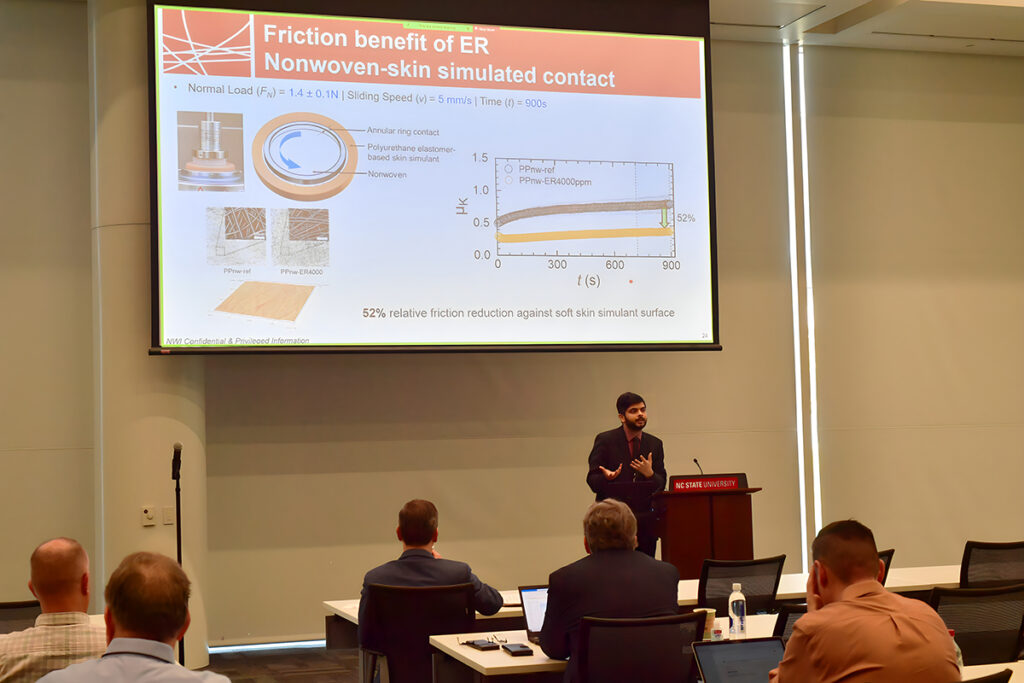
Nonwovens used in hygiene applications have an ever-increasing set of performance criteria and expectations by the consumers. Fluid transfer to an absorbent core is facilitated by the addition of various surfactants while aesthetics, primarily softness, may be controlled by the addition of other materials often including slip additives. Depending on whether slip additive-surfactant interactions at the polymer surface are synergistic or not, one can have either desirable control over the frictional and wetting behavior of the material or it can lead to performance issues. In his work, Pallav seeks to understand the interaction between these additives and how they can impact surface friction (softness) and wettability of nonwoven fabrics.
Pallav is a student of Dr. Saad Khan and Dr. Lilian Hsiao; both of NC State’s Department of Chemical and Biomolecular Engineering.
Pallav is currently a Graduate Research Assistant at NWI while pursuing his Ph.D. degree in Chemical Engineering at NC State, which he anticipates receiving in early 2024. He previously presented his work in 2022 via poster presentations at the IDEA®22 exhibition and conference held in Miami Beach, Florida, and at the RISE® Conference in Raleigh. Both IDEA® and RISE® are organized by INDA – the Association of the Nonwoven Fabrics Industry. Pallav was also recognized for his presentations at the Fall 2022 and Spring 2023 IAB meetings.
NWI, its Leadership, Faculty, Staff and Membership congratulates each of these outstanding students and wishes them well in their future endeavors. “The opportunity for these students to present their work before a group of true academic and industry experts uniquely prepares them for future careers,” said Dr. Raoul Farer, Chairperson of the Industrial Advisory Board’s Executive Committee and Technology Director of Freudenberg Performance Materials in Raleigh.
“As long-time practitioners, we are also energized by interacting with the next generation,” added Dr. DeeAnn (“Dee”) Nelson, Chairperson of NWI’s Strategic Scientific Advisory Board (SSAB) and R&D and Innovation Manager at Avgol Nonwovens; an Indorama Ventures Company.
Based at the Centennial Campus of North Carolina State University, The Nonwovens Institute (NWI) is a consortium of stakeholders spanning the breadth of the nonwovens value chain. Operating on an “Open Innovation” platform and covering the full Technology Readiness Level (TRL) range, NWI engages industry, government and academia to enable next-generation nonwoven solutions to mission-critical challenges. NWI supports Master’s- and Ph.D.-level students pursuing advanced studies in fiber and polymer science, chemical and bimolecular engineering, wood and paper science, textile engineering, color chemistry and other disciplines.
North Carolina State University is a pre-eminent teaching and research enterprise that excels across disciplines and contributes more than $6.5 billion annually to North Carolina’s economy. More than 37,000 undergraduate and graduate students learn by doing — pursuing original research, starting new companies, forging connections with top employers, and serving local and global communities. NC State’s 9,000 faculty and staff are world leaders in their fields, bridging the divide between academic disciplines and training high-caliber students to meet tomorrow’s challenges. Together, they build powerful partnerships with government, industry, nonprofits and academia to remake our world for the better.
Are you interested in student research opportunities with NWI?
Are you interested in membership opportunities with NWI?
- Categories:
